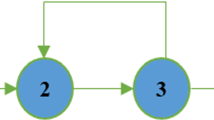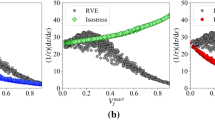Abstract
In this paper, the problem of multi-stage nonlinear model predictive control with scenario update is investigated for semi-batch polymerization processes. The objective is to propose novel online scenario update schemes such that the more reasonable scenario tree can be generated. Firstly, based on the Orthogonal Configuration of Finite Elements (OCFE) method of direct radau configuration, the dynamic optimization problems are converted to Nonlinear Programing (NLP) problems such that the speed and accuracy of real-time optimization problem solving are effectively improved. Then, the scenario deviation is calculated based on model prediction information of each scenario and process measurement information. After that, calculate the bayesian probability weight of corresponding scenario is obtained. The online scenario reduction scheme uses the weight information update scenarios gradually reduce the scope of scenario tree representation. The online scenario weight update scheme uses the weight information as the basis for weight assignment of each scenario in the optimization problem. They use different methods to make the scenario tree modeling approach the real realization of uncertainty, and reduce the conservativeness compared with the traditional MSNMPC fixed scenario tree method. Through multiple batches numerical simulations of a semi-batch polymerization process, the advantages and effectiveness of the two proposed schemes are verified.
Similar content being viewed by others
References
H. Jang, J. H. Lee, and L. T. Biegler, “A robust NMPC scheme for semi-batch polymerization reactors,” IFAC PapersOnLine, vol. 49, no. 7, pp. 37–42, 2016.
P. O. M. Scokaert and D. Q. Mayne, “Min-max feedback model predictive control for constrained linear systems,” IEEE Transactions on Automatic Control, vol. 43, pp. 1136–1142, 1998.
T. H. Kim and H. W. Lee, “Quasi-min-max output-feedback model predictive control for LPV systems with input saturation,” International Journal of Control, Automation, and Systems, vol. 15, no. 3, pp. 1069–1076, 2017.
P. J. Goulart, E. C. Kerrigan, and J. M. Maciejowski, “Optimization over state feedback policies for robust control with constraints,” Automatica, vol. 42, no. 4, pp. 523–533, 2006.
D. Q. Mayne, M. M. Seron, and S. V. Rakovi, “Robust model predictive control of constrained linear systems with bounded disturbances,” Automatica, vol. 41, no. 2, pp. 219–224, 2005.
D. Q. Mayne, E. C. Kerrigan, E. J. V. Wyk, and P. Falugi, “Tube based robust nonlinear model predictive control,” International Journal of Robust and Nonlinear Control, vol. 21, no. 11, pp. 1341–1353, 2011.
S. Mata, A. Zubizarreta, and C. Pinto, “Robust tube-based model predictive control for lateral path tracking,” IEEE Transactions on Intelligent Vehicles, vol. 4, no. 4, pp. 569–577, 2019.
S. Lucia, T. Finkler, D. Basak, and S. Engell, “A new robust nmpc scheme and its application to a semi-batch reactor example,” IFAC Proceedings Volumes, vol. 45, no. 15, pp. 69–74, 2012.
J. M. Bravo, T. Alamo, and E. F. Camacho, “Robust MPC of constrained discrete-time nonlinear systems based on approximated reachable sets,” Automatica, vol. 42, no. 10, pp. 1745–1751, 2006.
S. Lucia, R. Paulen, and S. Engell, “Multi-stage nonlinear model predictive control with verified robust constraint satisfaction,” Proc. of 53rd IEEE Conference on Decision and Control, IEEE, pp. 2816–2821, 2014.
S. Thangavel, S. Lucia, R. Paulen, and S. Engell, “Dual robust nonlinear model predictive control: A multi-stage approach,” Journal of Process Control, vol. 72, pp. 39–51, 2018.
D. Krishnamoorthy, B. Foss, and S. Skogestad, “A distributed algorithm for scenario-based model predictive control using primal decomposition,” IFAC Proceedings Volumes, vol. 51, no. 18, pp. 351–356, 2018.
S. Lucia, S. Subramanian, D. Limom, and S. Engell, “Stability properties of multi-stage nonlinear model predictive control,” Systems and Control Letters, vol. 143, p. 104743, 2020.
A. Mesbah, “Stochastic model predictive control: An overview and perspectives for future research,” IEEE Control Systems Magazine, vol. 36, no. 6, pp. 30–44, 2016.
S. Lucia, A. Tătulea-Codrean, and C. Schoppmeyer, “Rapid development of modular and sustainable nonlinear model predictive control solutions,” Control Engineering Practice, vol. 60, no. 5, pp. 51–62, 2017.
L. T. Biegler, “An overview of simultaneous strategies for dynamic optimization,” Chemical Engineering & Processing: Process Intensification, vol. 46, no. 11, pp. 1043–1053, 2007.
T. F. Finkler, M. Kawohl, and U. Piechottka, “Realization of online optimizing control in an industrial semi-batch polymerization,” Journal of Process Control, vol. 24, no. 2, pp. 399–414, 2014.
D. Dehaan and M. Guay, “Robust adaptive model predictive control of nonlinear systems,” Model Predictive Control, pp. 25–57, 2010.
S. Lucia, J. A. Andersson, H. Brandt, M. Diehl, and S. Engell, “Handling uncertainty in economic nonlinear model predictive control: A comparative case study,” Journal of Process Control, vol. 24, no. 8, pp. 1247–1259, 2014.
J. Andersson, J. Kesson, and M. Diehl, CasADi: A Symbolic Package for Automatic Differentiation and Optimal Control, Springer Berlin Heidelberg, 2012.
Author information
Authors and Affiliations
Corresponding author
Additional information
Publisher’s Note
Springer Nature remains neutral with regard to jurisdictional claims in published maps and institutional affiliations.
This work was supported in part by National Natural Science Foundation of China (No.62003139), and the Natural Science Foundation of Shanghai (No. 20ZR1415200).
Jing-Gao Sun received his Ph.D. degree in control science and control engineering from the School of Information Science and engineering, East China University of Science and Technology, Shanghai, China, in 2003. From July 2014 to January 2015, he was a visiting scholar in Lehigh University, USA. Now, he is an associate professor at East China University of Science and Technology. His research interests include nonlinear model predictive control, active disturbance rejection control, modeling, and optimal control of complex chemical process.
Xian-Feng Chen received his B.S. degree in automation from Wuhan Institute of Technology, Wuhan, China, in 2018. He is currently pursuing an M.S. degree with the College of East China University of Science and Technology, Shanghai, China. His current research interests include nonlinear model predictive control and complex process system control.
Guang-Hao Su received his B.S. degree in measurement and control technology and instrumentation program from Northeastern University, Qinhuangdao, China, in 2019. He is currently pursuing a Master’s degree with East China University of Science and Technology, Shanghai, China. His current research interests include data-driven control, anti-windup compensator synthesis, and disturbance rejection control.
Meng Wang received his Ph.D. degree in the Department of Mechanical and Biomedical Engineering, City University of Hong Kong, Kowloon, Hong Kong SAR, in 2018. He is currently an Associate Professor with School of Information Science and Engineering, East China University of Science and Technology, Shanghai, China. His research interests include robust control and filtering, and fuzzy systems and control.
Hong-Guang Pan received his Ph.D. degree from Xi’an Jiaotong University, Xi’an, China, in 2015. From September 2013 to March 2015, he was a visiting Ph.D. student in Lehigh University, USA. Now he is an associate professor at College of Electrical and Control Engineering, Xi’an Unversity of Science and Technology. His research interests include brain-machine interface.
Rights and permissions
About this article
Cite this article
Sun, JG., Chen, XF., Su, GH. et al. Multi-stage Nonlinear Model Predictive Control with Online Scenario Update for Semi-batch Polymerization Processes. Int. J. Control Autom. Syst. 20, 3187–3197 (2022). https://doi.org/10.1007/s12555-020-0737-6
Received:
Revised:
Accepted:
Published:
Issue Date:
DOI: https://doi.org/10.1007/s12555-020-0737-6




